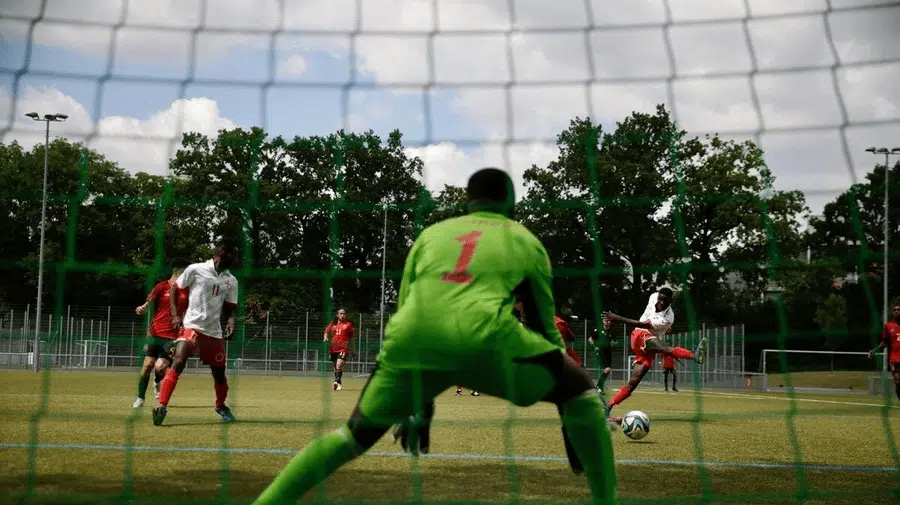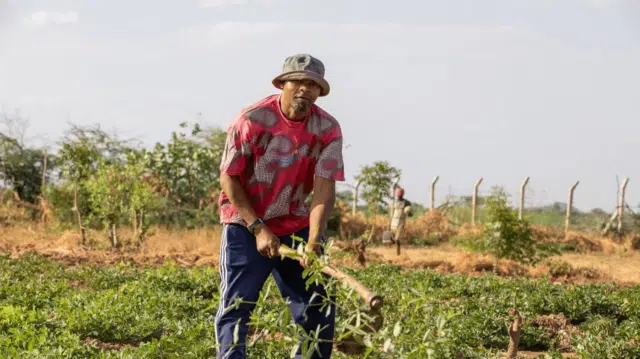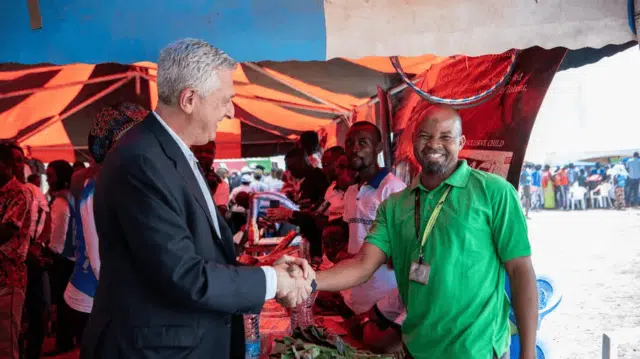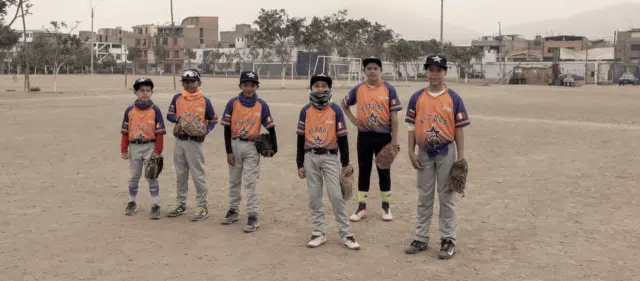
A player from the Spanish team aims for the Maltese goal at the UNITY EURO CUP in Frankfurt. © UNHCR/Gordon Welters
Finland won the second edition of the UNITY EURO CUP today in Frankfurt, showcasing the unique power of sport in bringing diverse people, including refugees, together.
At the end of a memorable day marked by a spirit of sportsmanship and inclusion, the Finland team triumphed 2-1 over the Republic of Ireland in the final of the UNITY EURO CUP 2023.
This year’s UNITY EURO CUP once again lived up to its promise of inclusion and empowerment for the 16 teams involved, bringing together male and female refugees and local players from the participating European nations.
This unique tournament, staged in Frankfurt, Germany, gave the players the opportunity to represent their host country, or the European Union in the case of Team EU, in an international competition.
On and off the pitch, the UNITY EURO CUP highlighted the role that football can play in strengthening ties between host communities and refugees, breaking down barriers and creating a spirit of inclusion through the universal language of sport.
Football can also help in changing negative perceptions and attitudes towards displaced people, helping them to feel included and integrated into their adopted communities. The UNITY EURO CUP also outlines the power of football when it comes to building a better future for refugees around the world.
“Football is a unifying force in a world burdened by barriers. This tournament beautifully exemplifies our sport’s profound impact on people’s lives and promotes the values that UNHCR and UEFA stand for. Starting in unfamiliar surroundings is often challenging, but football can act as a powerful catalyst for integration and connection. It fosters understanding and unlocks opportunities for structured engagements and experiences that can genuinely affect our communities” said Aleksander Čeferin, UEFA President.
As part of the UEFA Football Sustainability Strategy 2030Link is external, UEFA actively promotes the integration of refugees, asylum-seekers and displaced individuals within host communities through football.
UNHCR has developed the UNHCR Sport Strategy – More than a GameLink is external – which outlines the role that sports and sports organizations can play in improving the lives of displaced and stateless people and in supporting integration with host communities.
“This tournament is a great example of how sport can unite individuals and communities, break down cultural barriers and empower people. Providing people whose lives have been severely affected by war, conflict, discrimination or persecution with opportunities to engage in sport can help them heal, strengthen their skills – or help develop new ones – and feel included. We can see it in our everyday work with refugees, and I could see it again today,” said Filippo Grandi, United Nations High Commissioner for Refugees.
Former international referee, Felix Brych, who took charge of the 2017 UEFA Champions League final, officiated the tournament’s final at the DFB Campus in Frankfurt. Each team was also supported by an eminent ambassador, with local fans and teams invited to watch the group stage on the premises of SC Weiss-Blau, a local Frankfurt club.
“The UNITY EURO CUP connects people and nations and creates a positive atmosphere even in difficult times. On the pitch, everyone is equal, and everyone plays by the same rules,” Brych said. “Being a part of this tournament means a lot to me, it was a great honour.”
As the trophy was handed over to Finland, team captain Hassan Yaghoubi said: “It’s a special tournament, it’s an amazing opportunity for everyone here to come together, to meet each other and I hope this will continue every year. Football is, in my opinion, the best sport in the world. To see all these people together, enjoying themselves and laughing, it is what life is all about.”
This year’s edition of the tournament included 16 teams – twice the number of the first edition held in 2022 in Switzerland – with players representing Armenia, Austria, Belgium, Finland, France, Germany, Italy, Latvia, Malta, the Netherlands, Northern Ireland, the Republic of Ireland, Spain, Switzerland, Ukraine, and an EU team.
Note to media:
Pictures of the tournament can be downloaded here for editorial purpose only.





